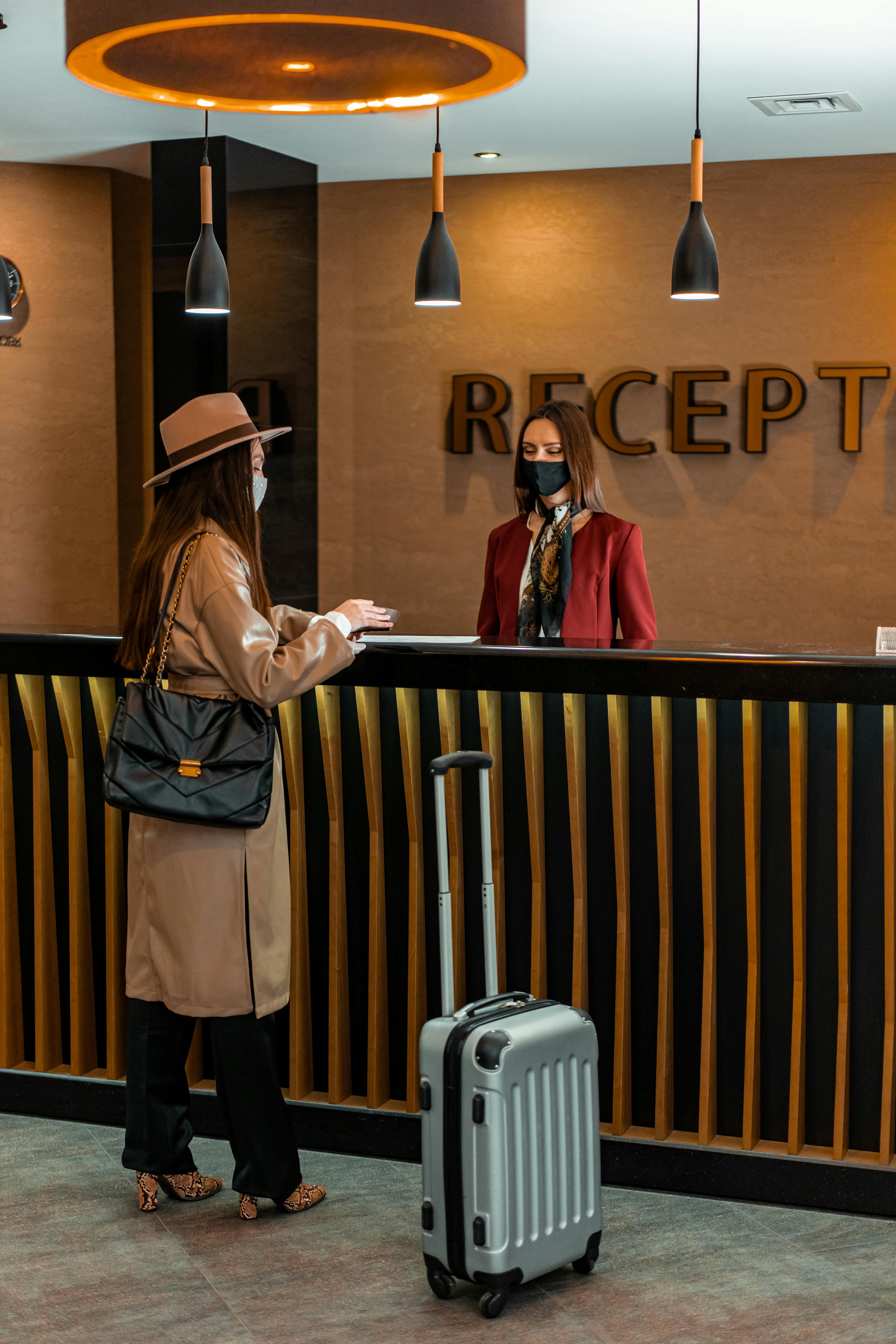What’s corporate travel management? A guide for 2025

Corporate travel management makes business work smarter on the road. And with more and more professionals traveling and working remotely—especially in fields like construction, consulting, and healthcare—managing corporate travel efficiently is more important than ever.
Whether you’re planning your first business trip or setting up a full travel program for your company, this helpful guide will teach you what you need to know about corporate travel management, with practical tools and tips for tackling common challenges.
What’s corporate travel management?
Behind every successful trip is a well-designed process that keeps business travelers safe, on budget, and productive. The goal is to support employees on the road without overspending or causing unnecessary friction.
Corporate travel management is how a company plans, books, tracks, and optimizes employee travel—whether it’s for a conference, a job site visit, or a client meeting. It covers everything from setting travel policies and making sure bookings stay on budget to negotiating better rates with vendors. Some companies handle these processes in-house, while others use external travel management services or platforms like Engine.
Smooth business travel starts with a solid foundation, including:
- Clear business travel policies: Guidelines for trip booking, expenses, and reimbursements that evolve with the business.
- Organized itineraries: Centralized access to business trip details like flights, hotels, and confirmation numbers.
- Traveler safety protocols: Emergency procedures, risk assessments, and clear communication channels before and during travel.
- A defined travel budget: Budget frameworks that align with company goals and emphasize cost tracking and prioritization.
- Tax and compliance awareness: Explanations of employee rights and responsibilities, including per diem rules, taxable benefits, and what qualifies as a reimbursable expense.
- Expense management and tracking systems: Tools that streamline receipt tracking and expense categorization.
- Corporate payment options: Credit cards or prepaid solutions that simplify purchases and may offer rewards.
- Transportation logistics: Guidelines for booking flights, rental cars, rideshares, and refueling.
- International travel planning: Considerations like passports, visas, insurance, currency exchange, and time zone differences.
- Lodging arrangements: Accommodations that balance comfort, cost, and convenience—plus negotiated group rates for larger teams.
How does corporate travel management work?
Managing business travel involves arranging and overseeing business travel for everyone from junior staff to executives, providing a consistent and efficient booking process. Corporate travel managers also track and control expenses in real time to help the organization stay within budget and aligned with its travel policies.
Throughout the journey, travelers receive support before, during, and after their trips, whether they need help with a last-minute flight change or a hotel cancellation. The corporate travel manager also maintains relationships with travel vendors like airlines, hotels, rental car companies, and technology platforms to streamline operations. These partnerships often unlock discounted corporate rates and added perks for frequent business travel.
The travel program also handles group logistics for conferences, training sessions, and team offsites, making sure everyone arrives on time and within budget. And once the business trip has ended, the corporate travel manager reviews expenses, analyzes travel data, and compiles detailed reports that help leadership assess spending patterns and overall ROI.
4 corporate travel management tools
Choosing the right tools is key to successful travel management. Here’s a breakdown of the main options companies use.
Customer travel booking sites
Many companies start by letting employees book their own business trips using public sites like Expedia, Kayak, or Booking.com. While these customer travel booking sites are usually user-friendly and familiar to recreational travelers, they have drawbacks. Without centralized oversight, it’s hard to enforce travel policies, track expenses, or ensure employees choose cost-effective options. Receipts and itineraries can also get scattered, creating headaches for both travelers and finance teams.
Travel agencies
Traditional travel agencies offer personalized service, dedicated agents, and support. They can help book complex international trips or provide “white glove” service to executive business travelers, but they may lack the real-time data visibility and automation features that fast-moving teams require. Manual processes can slow things down, and costs may be higher than those of digital platforms.
Travel management software
Travel management software is designed specifically for corporate use. These tools offer centralized booking, travel policy integration, expense tracking, and approval workflows. Some also integrate with HR or accounting systems to streamline reporting. This option gives companies more control and visibility than consumer sites or traditional agencies.
All-in-one travel management platform
All-in-one travel management platforms are the most comprehensive solutions. Within one easy-to-use system, they combine travel booking, expense management, policy enforcement, real-time reporting, and business traveler support. These platforms help standardize processes across teams, reduce admin time, and give finance leaders the insights they need to manage budgets proactively.
Some platforms—like Engine—go a step further by offering integrated hotel booking tools and automated expense reports tailored to business needs. These solutions are ideal for companies that want to scale their travel program while remaining compliant and cost-effective.
Benefits of having a corporate travel management platform
Investing in a travel management platform comes with real advantages:
- Time-effective: Automating bookings, approvals, and reimbursements saves hours of admin work.
- Cost-effective: Access to negotiated rates and better travel insights helps reduce overall spend.
- Structures travel policies: Built-in policy controls ensure employees follow company guidelines, helping the company avoid rogue bookings.
- Keeping track of all travel expenses: With all trip data in one place, finance teams can easily monitor and report on travel spending.
What corporate travel management looks like in practice
Say a mid-size marketing agency is sending two account managers from New York to attend a three-day client conference in Chicago. Here’s how corporate travel management simplifies the process.
Booking the trip
Instead of searching multiple consumer sites, the traveling employees use their company’s all-in-one travel management platform. It automatically applies their travel policies, shows only approved flight options, and flags hotels that offer discounted corporate rates.
Pre-trip support
The system generates a complete itinerary that includes flight times, hotel information, and contact details. If a flight is delayed or canceled, 24/7 traveler support is available to get the trip back on track.
Managing travel expenses
The team uses a company-approved travel card to pay for meals and local transportation during business trips. Each purchase is automatically logged, categorized, and matched to the trip record in the expense tracking tool.
After the trip
When the employees return, there’s no need to manually submit receipts—the travel management software has already collected the data. An expense management report is sent to the finance team, which reviews the business travel expenses and sends a summary to the CFO.
This streamlined process saves time, supports policy compliance, and helps the company stay within budget while keeping employees focused on the work that matters most.
Streamline your corporate travel management process with Engine
Corporate travel doesn’t have to be overwhelming. With the right policies, tools, and planning, you can support your team and get the most out of every trip.
Enter Engine, the all-in-one travel management platform designed to simplify business travel for growing companies. From booking to budgeting to traveler support, Engine gives you full control and visibility over your team’s travel—without the spreadsheets or stress.
Connect with Engine today to simplify your corporate travel management and let employees focus on the work they’re there to do.


.jpg)


.jpg)



.avif)


.jpg)

.jpg)



.avif)























.avif)

